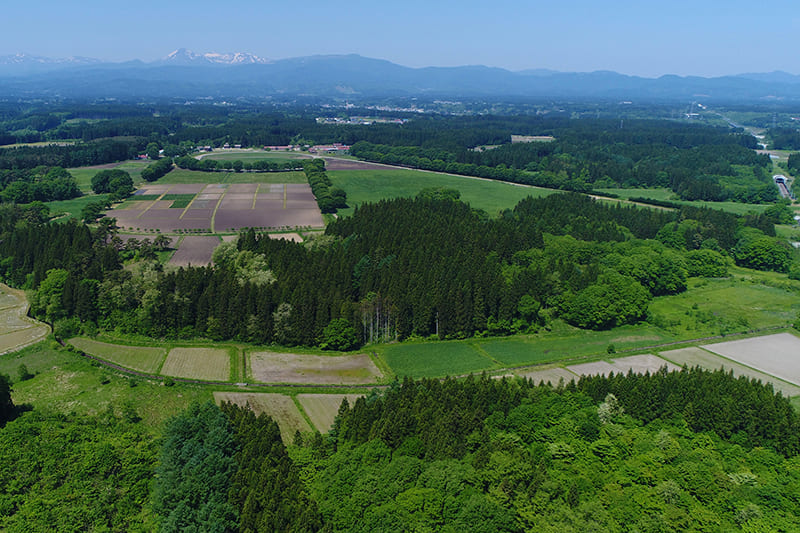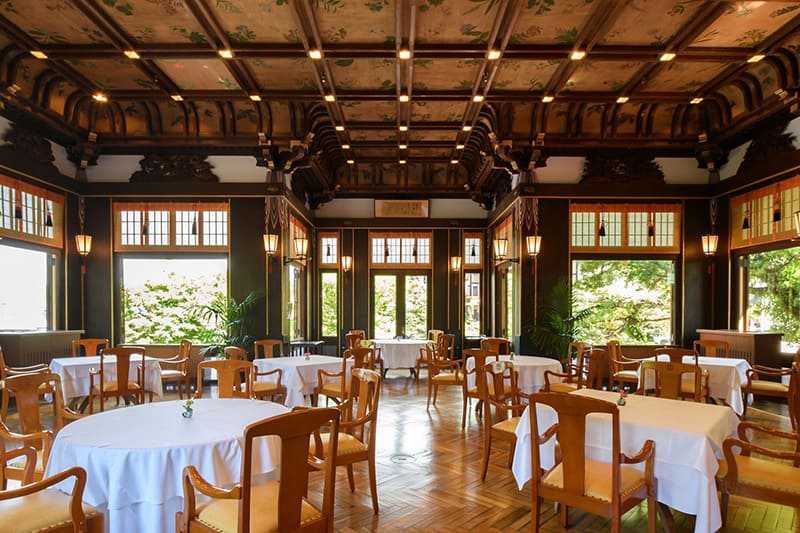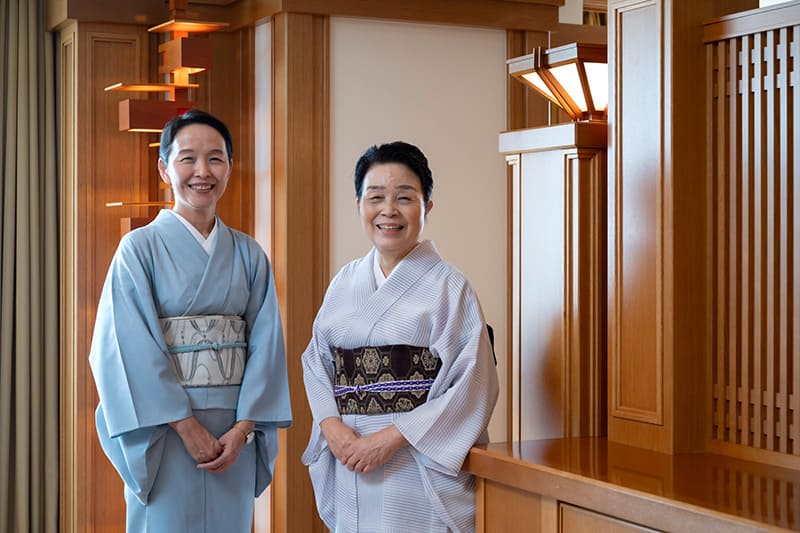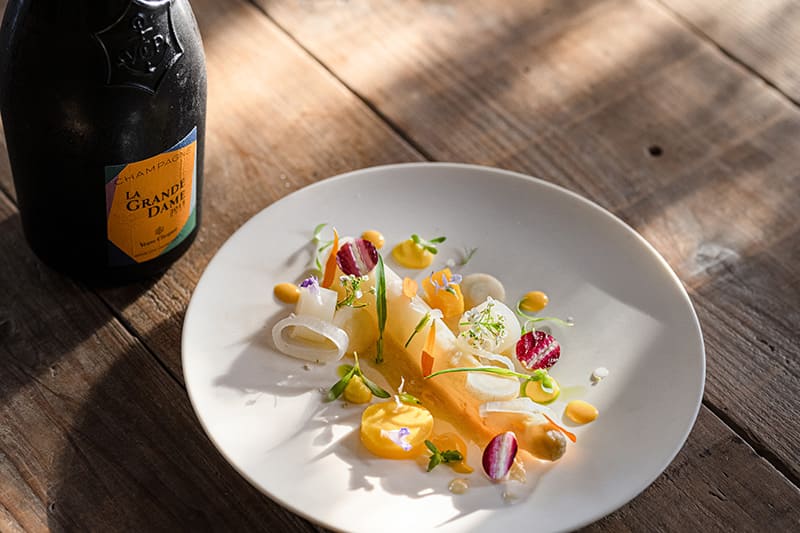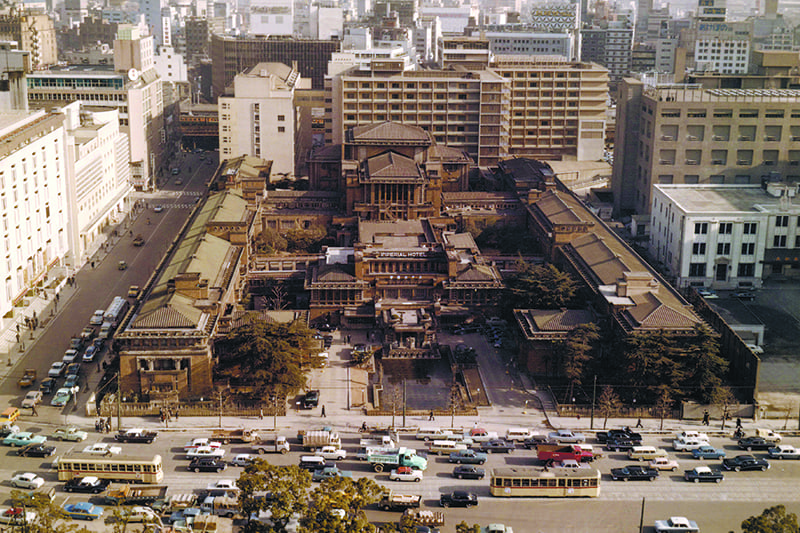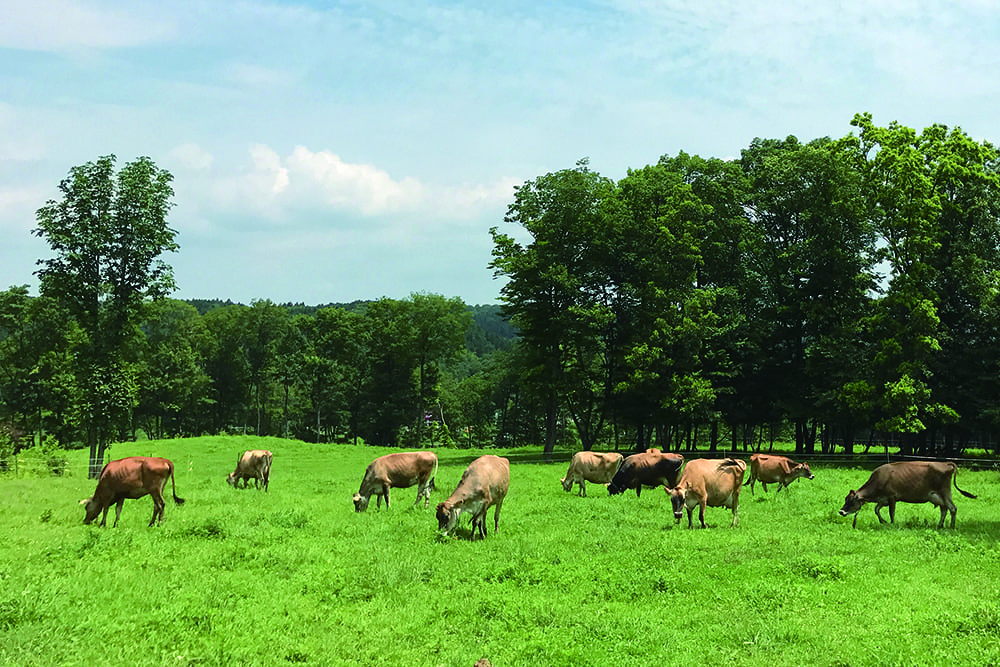June 28, 2024
A circular approach to farm-to-table dining
SPONSORED CONTENT
In a world where sustainability and conscious consumption are becoming increasingly important, a remarkable partnership between a hotel in Tokyo and an organic farm in Aomori Prefecture is showcasing the initiatives of circular agriculture and farm-to-table dining. Hotel Continental Fuchu and Tohoku Bokujo Ranch offer guests an unparalleled culinary experience featuring the finest organic produce and sustainable practices.
Hotel Continental Fuchu, located in the suburbs of western Tokyo merely a one-minute walk from Fuchu Station on the Keio Line, offers its guests a unique farm-to-table dining experience. The hotel partners with its own Tohoku Bokujo Ranch to bring the finest organic produce to the table, including vegetables, fruits, eggs and wild herbs, all without the use of pesticides or chemical fertilizers. It takes pride in serving fresh ingredients directly from the farm, which are delivered every Monday and Thursday. These ingredients are used to prepare meals in the hotel’s Japanese, French and Chinese restaurants, as well as its banquets, ensuring that guests can enjoy the exceptional quality and flavor of the farm-fresh produce in every dish.
Tohoku Bokujo Ranch, located in Aomori Prefecture, is a beacon of organic farming and sustainable practices. The 100-hectare farm, which is about the size of 21 Tokyo Domes, is home to more than 100 crops. The farm began as a directly managed ranch for raising thoroughbreds, a function it continues to serve to this day.
The farm’s natural farming practices are achieved through the use of fully ripened compost made from the manure discharged by the thoroughbred horses and the hay from their stalls. The horses are fed a diet of chemical-free grass and hay, ensuring that the compost made from their manure is of the highest quality and rich in plant-based organic matter. “Among the horses we keep are those that have already retired from racing. But it does not make them less important to us because it is their manure that enriches our soil and nurtures our vegetables,” Kazuki Kashiwazaki, head of Tohoku Bokujo Ranch, explained.
The farm’s ideal circulation of natural resources extends to its Asunaro chickens. They are raised in spacious, well-ventilated coops and fed a diet of chemical-free dent corn grown on the farm, along with other locally sourced natural ingredients. These chickens produce exceptional-quality eggs,, with a deeply satisfying flavor and naturally vibrant yellow yolks. The chickens’ waste, including eggshells returned from the hotel’s kitchens, is mixed into the soil of the farm and used as a natural fertilizer for the farm’s crops, completing the cycle of sustainability.
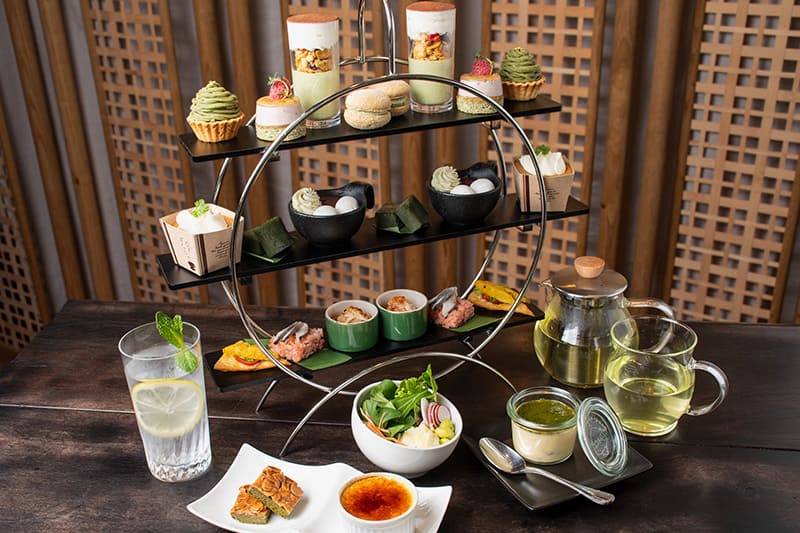
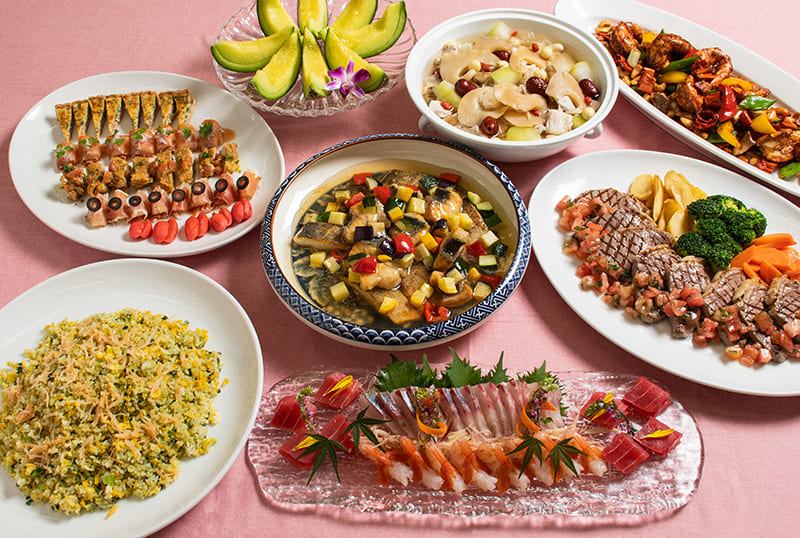
Japanese-style afternoon tea with wildflowers. Right: Party food at the hotel banquet hall, mixing Japanese, Western and Chinese cuisine.
Executive Chef Meghanath Aryal of Hotel Continental Fuchu was astounded by the quality of Tohoku Bokujo’s produce. Aryal, who has been working at the hotel for three years, remarked, “When I tasted a daikon radish from Tohoku Bokujo, I was surprised and impressed that it tasted just like the daikon I used to eat in my hometown in Nepal,” one of the vegetables grown organically by his parents. Praising the vegetables’ wild and pungent flavor, Aryal added, “I felt the same life force in the daikon radishes grown at Tohoku Bokujo.” Since then, Aryal has worked closely with the farm to maximize the charm of its produce in the dishes he serves.
The partnership between the farm and the hotel goes beyond mere food supply. On the days when 10 to 30 boxes from the farm arrive at the hotel, guests and non-guests have the opportunity to witness the unpacking of the farm’s produce and sample freshly picked vegetables. The vegetable parts that would normally be discarded are instead utilized in cooking, for instance, in preparing the staff’s meals or making soup stock. Hotel employees, including Executive Chef Aryal, visit the farm regularly to discuss crop allocation and reduce food waste with farm staff. “We also send them pictures of the dishes served at our restaurants and feedback from the customers,” General Manager Yu Osumi added, highlighting the warm relationship between the hotel and the farm.
Osumi emphasizes the importance of this partnership in providing exceptional hospitality. “We want our guests to feel satisfied, so we produce everything to our stand ards, including the ingredients for creating delicious food. This is the essence of our hospitality,” Osumi stated. The hotel also offers advice on local attractions based on the interests of each guest, encouraging visitors to base their travels in Fuchu and to make the most of their stay. From the historic Okunitama Shrine to the renowned Tokyo Racecourse, including art museums and others, there is something for everyone in Fuchu.
Tohoku Bokujo Ranch practices sustainable agriculture thanks to a unique cycle in which its organic produce is served at the hotel in Tokyo. This circular business model, connecting Aomori and Tokyo, contributes to regional revitalization by creating jobs and stimulating economic growth in Aomori. At the same time, Tohoku Bokujo Ranch is taking on the challenge of growing rice, a traditional staple food in Japan, especially delicious in the Aomori region.By dedicating itself to the ongoing challenge of showcasing Aomori’s appeal in the consumption area of Tokyo, Hotel Continental Fuchu will continue to play an active role in ensuring the long-term success of this sustainable partnership and the continued growth of the region.
“ファーム・トゥ・テーブル”への循環的アプローチ。
京王線府中駅から徒歩1分、東京都西部に位置する〈ホテルコンチネンタル府中〉では、ユニークなファーム・トゥ・テーブル・ダイニングをゲストに提供している。ホテルが所有する〈東北牧場〉と連携し、農薬や化学肥料を使用しない野菜、果物、卵、野生のハーブなど最高級のオーガニック食材を使用しているのだ。
ホテル内の日・仏・中の各料理、そして宴会料理でも農場で採れた新鮮な食材を堪能することができる。青森県にある〈東北牧場〉は、有機農業と持続可能な農業の先駆けである。元はサラブレッドを育てるための直営牧場として始まったが、現在でもここの自然農法は、馬が排出する糞尿や馬房の干し草から作られる完熟堆肥の使用によってなされている。サラブレッド堆肥は、植物性有機物を多く含む最高品質の堆肥である。
「私たちが飼育している馬の中には、すでにレースを引退した馬もいます。しかし、彼らの糞尿が土壌を豊かにし、私たちの野菜を育ててくれています」。〈東北牧場〉代表の柏崎一樹氏は説明する。
Return to Sustainable Japan Magazine Vol. 37 article list page

